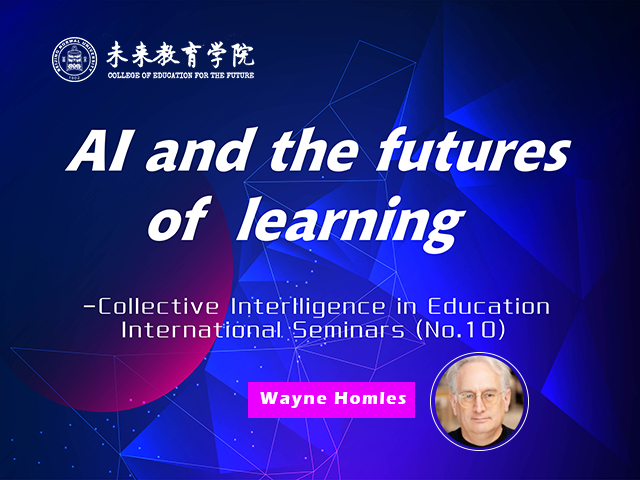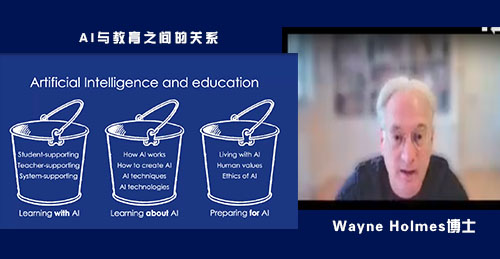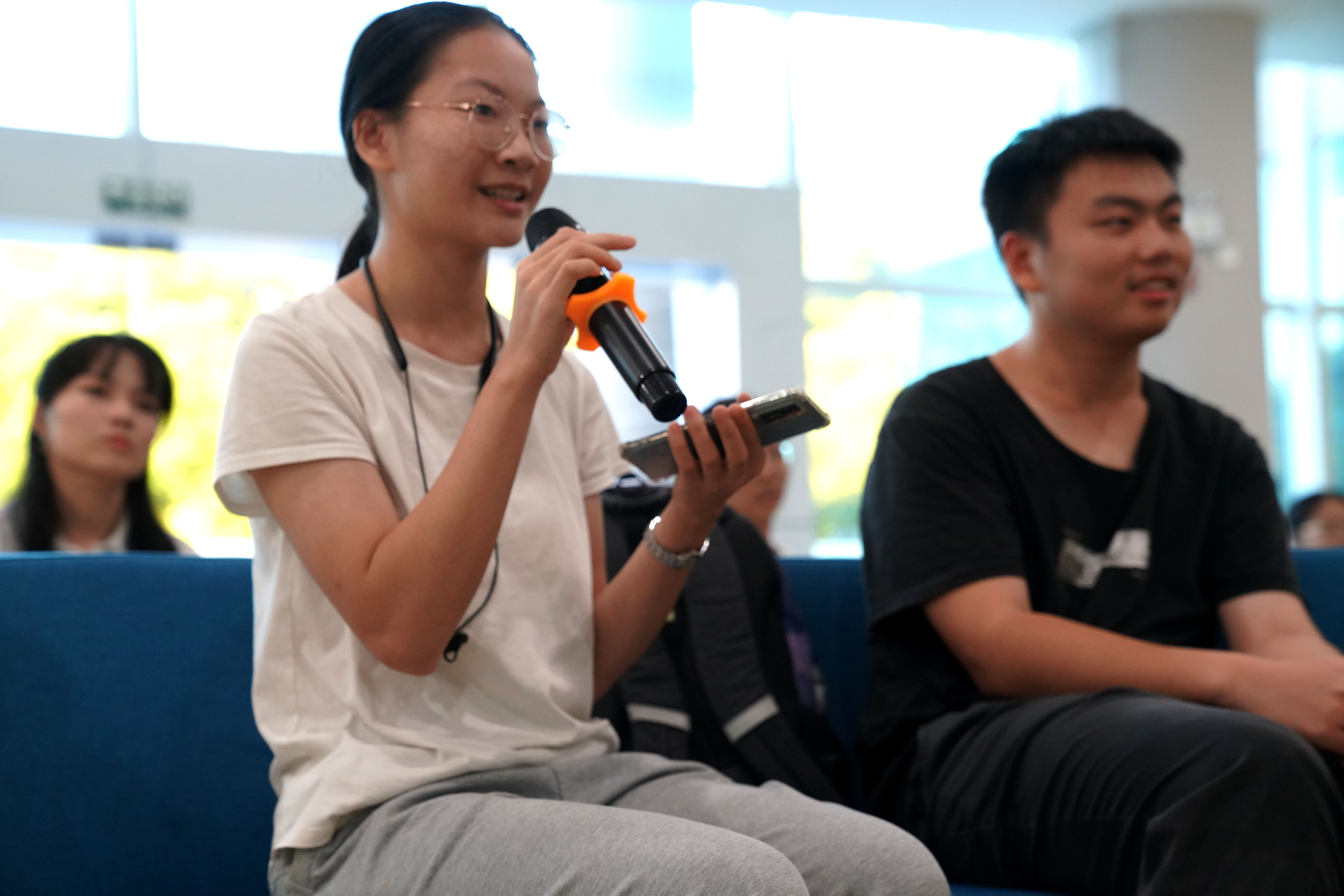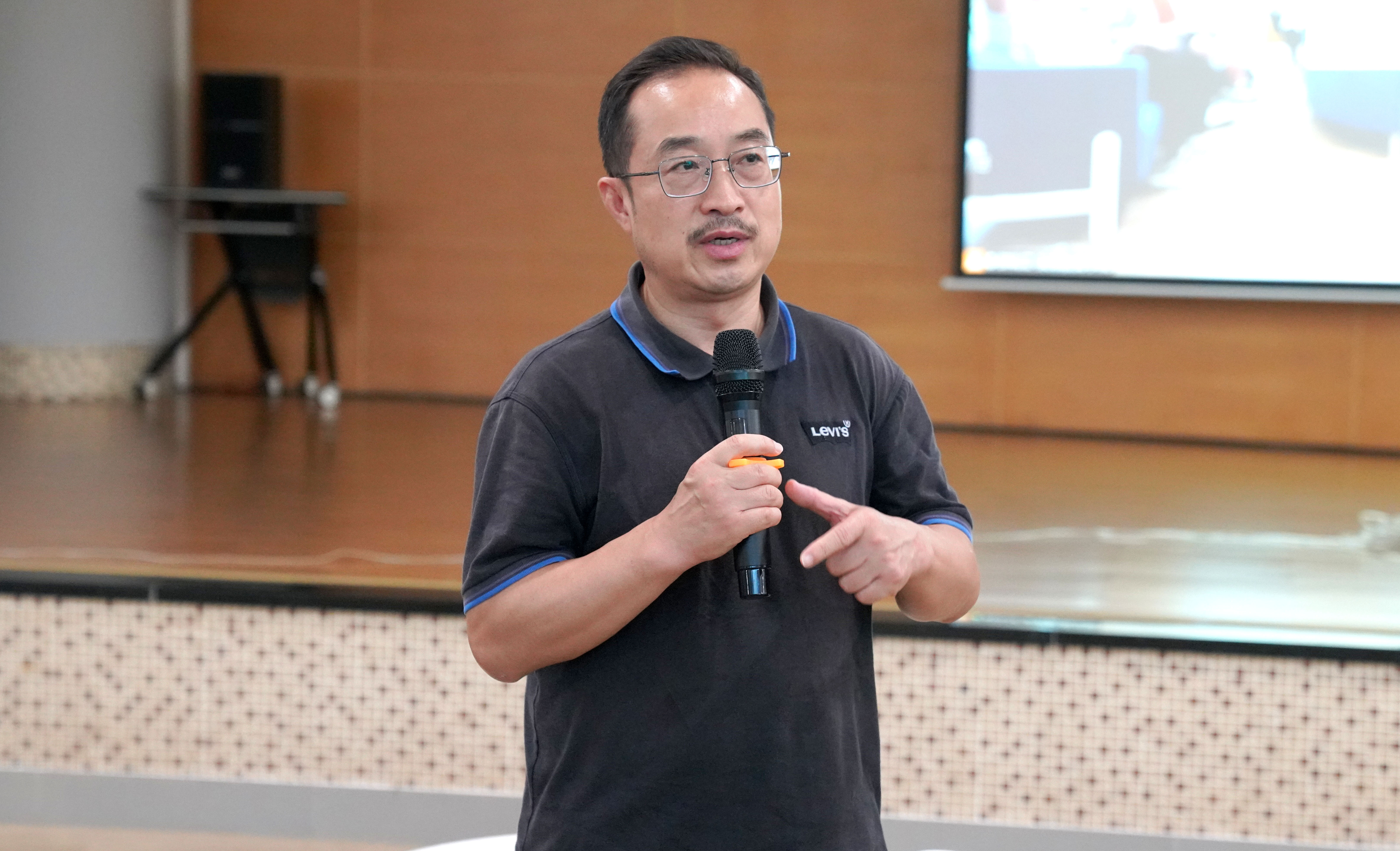On the afternoon of June 23, sponsored by College of Education for the Future, the 10th Collective Intelligence in Education International Seminars was held in A101 Salon Area, Lijiao Building.

The speaker for this seminar is Wayne Holmes (PhD, University of Oxford) who teaches at University College London. He is also a learning sciences and innovation researcher on Artificial Intelligence (AI) and education (AI&ED) for UNESCO, IRCAI (the International Research Centre on Artificial Intelligence, under the auspices of UNESCO), and the Council of Europe. In this seminar, Wayne gave a lecture entitled “AI and the futures of learning”, which explored the complex relationship between AI and education from a critical research perspective. Teachers and students from related majors of the College of Education for the Future as well as online audience participated in the seminar.
Firstly, Wayne analysed the current application of AI technology in education and confirmed the progress brought by the extensive use of AI from learning with AI, learning about AI, and preparing for AI. Wayne also pointed out the limits of AI and the challenges it has been posing to education, such as the negative impact of AI application on personalized learning, collaborative learning, cognitive development, student initiative, and teachers’ power, as well as ethical issues in classroom learning and test monitoring. In addition, current AI education developers tend to solve only superficial problems from a technical perspective rather than solving fundamental problems from an educational perspective. Also, almost no AI education products’ effectiveness has been independently evaluated. In the end, Wayne concluded that in the face of the enormous potential of AI, developers should avoid simple automating practicing. Instead, AI should be used to develop innovative approaches of teaching and learning to address real problems in education, meet the actual needs of education, and promote the inclusiveness and equity of education.

In the following Q & A session, Wayne answered questions from the faculty and students of College of Education for the Future. Among them, Liu Xiantao, a history major of 2021, posted the idea that AI was mechanical without emotion and asked methods to collaborate AI and human society. Wayne agreed with Liu and said that AI by itself would not have a positive effect. What mattered was how AI engineers or educators are willing to use it. He also pointed out that AI could not replace the core position of teachers in education and it might be better to use AI to assist teachers’ growth than to teach directly.

Finally, professor Sun Bo, Vice President of College of Education for the Future expressed that this seminar is designed to help students to understand the use of AI in education, and to improve their cognitive level of intelligent education so that they may prepare for the future teachers’ career. He hoped that students can broaden horizons through these seminars, which may complement their thinking angles and methods. This seminar gave students and teachers a deeper understanding of advantages and disadvantages of AI education. It also instructed how to better play the advantages of AI in education.



